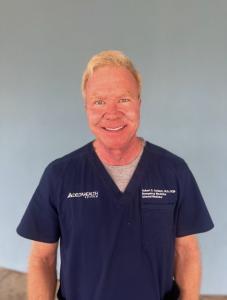Responding to Sudden Cardiac Arrest: Dr. Robert Corkern’s Expert Advice on Immediate Action
Responding to Sudden Cardiac Arrest: Dr. Robert Corkern’s Expert Advice on Immediate Action
Blog Article

Unexpected cardiac arrest (SCA) is a medical emergency that will attack without warning, usually ultimately causing death or even treated immediately. Dr Robert Corkern, a renowned cardiovascular expert, gives an obvious and actionable information for answering sudden cardiac arrest. Whenever a person's heart abruptly prevents beating, swift and successful activity is crucial to truly save their life. Dr. Corkern's strategy centers around immediate care, including realizing the signals of SCA, calling for crisis aid, doing CPR, and having an Computerized Additional Defibrillator (AED).
Knowing Sudden Cardiac Arrest
Dr. Corkern describes that realizing quick cardiac arrest may be the first step in giving immediate care. Unlike a heart attack, which can provide with chest suffering or vexation, unexpected cardiac charge does occur once the heart abruptly stops defeating due to an electric malfunction. The person might fail, eliminate mind, and end breathing or show abnormal breathing, such as gasping. It's essential to notice that in the case of SCA, the average person may possibly be seemingly unresponsive and have no pulse. Immediate activity must prevent dangerous consequences.
Call for Emergency Support Straight away
Time is of the substance when coping with sudden cardiac arrest. Dr. Corkern worries the significance of contacting emergency solutions the moment possible. Immediate medical intervention is essential to replace the heart's typical rhythm. Calling 911 or the local disaster quantity alerts qualified experts who can offer sophisticated attention, such as for instance intubation, treatment, or defibrillation, that could be essential to support the person's condition. While looking forward to medical responders to arrive, every energy to restore the person should continue without delay.
Accomplish High-Quality CPR
Dr. Corkern highlights that doing supreme quality CPR (cardiopulmonary resuscitation) is vital in sustaining body flow to the mind and critical organs throughout unexpected cardiac arrest. If the person is unresponsive and maybe not breathing, begin CPR immediately. Dr. Corkern recommends chest compressions at an interest rate of 100-120 each and every minute, driving difficult and fast at a depth of at least two inches. After every 30 compressions, provide two rescue breaths, ensuring that the airway is open. If you're perhaps not competed in offering recovery breaths, doing hands-only CPR (continuous chest compressions) continues to be highly effective.
Use an Automatic Additional Defibrillator (AED)
An Automatic Additional Defibrillator (AED) is really a lightweight product that may provide an electrical distress to the heart to restore its usual rhythm. Dr. Corkern challenges that an AED is among the most important tools for treating unexpected cardiac arrest. If one can be acquired, it should be applied the moment possible. AEDs are created to be user-friendly, with step-by-step style instructions that guide the user through the process. After the AED is mounted on the patient, it will analyze their center beat and, if needed, supply a shock to the center to potentially restart usual electric activity.
Continue steadily to Check the Person's Condition
Even with initiating CPR and using an AED, Dr. Corkern advises that the individuals issue be closely monitored till help arrives. Carry on performing CPR if necessary, and watch on their breathing, heart, and over all response. If the person regains mind and starts breathing typically, place them in the healing position (lying on their part using their mind fished back) to make certain their airway remains clear. If their heart prevents again, keep on CPR till medical responders arrive or anyone reveals signs of life.
6. Follow-Up and Post-Emergency Attention
When emergency responders appear, they will take control and give advanced care, such as for instance advanced airway administration, intravenous medications, and stabilization. Dr. Corkern recommends that those who survive a sudden cardiac arrest event get a complete medical evaluation to determine the reason for the arrest and start treatment to stop potential incidents. This could include lifestyle improvements, medicines, or, in some cases, the implantation of a defibrillator to manage center rhythms.
To conclude, unexpected cardiac arrest is a medical crisis that will require quick and decisive action. Dr Robert Corkern Mississippi's strategy highlights realizing the signals of SCA, contacting crisis solutions, performing CPR, using an AED, and ongoing to monitor the individual's condition. By subsequent these measures, you are able to raise the likelihood of survival in a cardiac crisis, and potentially save a life. Dr. Corkern's advice is an essential source in ensuring a quick, effective a reaction to quick cardiac arrest.
Report this page